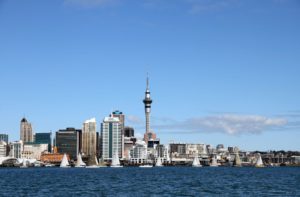Immigration updates for AMER, APAC and EMEA regions
Americas
Brazil: Digital nomads visa
As of January 24, 2022, immigrants who would like to work for foreign employers while staying in Brazil, with no formal employment registered in the country, may be granted a temporary visa and residence permit. This new temporary visa will allow people to work in the country under a contract with foreign employers. The visa should be requested at any Brazilian Consulate. Alternatively, if the person is already in Brazil, they can request a change of status as a post-arrival through the Coordenação-Geral de Imigração Laboral. The visa will be valid for one year and can be renewed for another year.
This summary was prepared using information obtained from the PORTAL DA IMIGRAÇÃO (in Portuguese).
Disclaimer: The above information is provided for general information purposes only and should not be construed as legal advice. If you have any further inquiries regarding the applicability of this information, please contact Roberta Carnaccini Global Operations Director.
Asia-Pacific
New Zealand: Phased re-opening with self-isolation
The New Zealand Government announced a phased re-opening of their borders. This will have an impact on the existing Managed Isolation (MIQ) requirement for arrivals into New Zealand, along with fundamental changes to the current immigration requirements and the Critical Purpose visa category.
Fully vaccinated travelers who can enter New Zealand based on the current border restrictions will no longer need to secure an allocation in MIQ, to enter New Zealand. Arrivals will instead be required to self-isolate for either seven or ten days. The length of self-isolation will be based on which phase in the Omicron response New Zealand is in. In phase one (the current phase) ten days will be required and in phase two this will move to seven days.
The pre-departure testing requirement (currently within 48 hours of departure) will remain in place. It is important to note that MIQ requirements will also remain for the unvaccinated (those 17 years or over).
The Government has advised that the isolation requirements will be reviewed regularly. The reopening to visa-free tourists may also be brought forward from July.
Click here to find more information the relaxation of border restrictions for New Zealand.
This summary was prepared using information obtained from the Guardian.
Philippines: Revised travel restrictions
The classification of countries / territories / jurisdictions as “Green”, “Yellow”, and “Red” is suspended temporarily. The entry, testing, and quarantine protocols for international arriving Filipinos and foreign nationals can be found here.
Entry protocols for fully vaccinated nationals of non-visa required countries:
- Fully vaccinated nationals of non-visa required countries under Executive Order No. 408 (s.1960), shall be allowed to enter the Philippines, subject to the below conditions:
- Must be holders of passports valid for at least six months at the time of arrival, and with a return or outbound ticket to their country of origin or next country of destination.
- Must have the following proofs of vaccination against Covid-19 recognized under existing Inter-agency task force for the management of emerging infectious diseases resolutions (IATF) regulations:
- World Health Organization (WHO) International Certificates of Vaccination and Prophylaxis (ICV);
- VaxCertPH; or
- National / state digital certificate of the foreign government which has accepted VaxCertPH under a reciprocal arrangement unless otherwise permitted by the IATF.
- Children below 18 years of age are exempted from the requirement of full vaccination and providing proof of vaccination status prior to boarding.
- Observe the above-mentioned existing testing and quarantine protocols in place for fully vaccinated international arriving passengers.
- Fully vaccinated nationals shall not be included in the arrival quota set by the Department of Transportation and its One-Stop-Shop.
This summary was prepared using information obtained from the Republic of Philippines.
Disclaimer: The above information is provided for general information purposes only and should not be construed as legal advice. If you have any further inquiries regarding the applicability of this information, please contact Debra Jane Beynon, Regional Immigration Manager (APAC).
Europe, Middle East and Africa
European Union: Entry and exit system
From May 1, 2022, the data of third-country nationals entering the Schengen area for a short stay will be recorded electronically. To this end, a Europe-wide information system is being introduced known as the Entry / Exit System (EES).
The EES helps to further strengthen controls at the external borders and thus increases security in the Schengen area. With the automation of numerous processes through using modern technologies, border control should also be made more efficient. The EES will be used in Switzerland at the airports as well as by the migration and police authorities.
For the implementation of the EU legal basis for the EES, adjustments are also required at the regulation level. A new regulation on the entry and exit system (EES) is being created. This mainly regulates the input, processing, and query rights of the Swiss authorities as well as the procedure for querying and accessing the EES data.
This summary was prepared using information obtained from the European Commission.
Nigeria: Updated guidelines on the administration of expatriate quota and other business instruments
The Directives for companies and organizations granted Expatriate Quota positions:
- Appraisal of Expatriate Quota on Permanent Until Reviewed (PUR) status:
- In a bid to examine all granted Expatriate Quota Positions (EQPs) on PUR status, all companies and organizations that have been granted PUR facilities by the Ministry of Interior are requested to submit clear copies of their Letter of Approval to the Office of the Deputy Director (Citizenship and Business Department) before February 18, 2022.
- All EQPs on PUR status that are not submitted before the deadline will be deemed to have lapsed and will be cancelled.
- Mandatory submission of monthly returns:
- All companies and organizations granted EQPs are to submit monthly returns on the utilization of all approved Expatriate Positions issued by the Ministry to their respective organizations via the ministry’s website.
- All organizations granted EQPs must ensure that their Expatriates and Nigerian Understudies obtain National Identification Number (NIN) which must be reflected in the Monthly Returns.
- Update of details of company representatives:
- All companies and organizations benefiting from the facilities granted by the Ministry must update their contact details with the Ministry by forwarding a formal letter introducing their representatives (whether a full-time employee or Consultant) to the “Office of the Director (Citizenship and Business Department)”.
This summary was prepared using information obtained from the Ministry of Interior.
Schengen Area: New visa rules
All Embassies, Consulates, and visa centres granting Schengen visas have started applying new visa rules as per below:
- Visa fees have increased for all applicants: Applicants will now need to pay €80 per application, while children aged six to 12 will need to pay €40. The fee does not change for nationals of countries that have a visa-facilitation agreement with the European Union, for which the fee remains €35.
- Application form can now be signed and submitted electronically.
- Possibility to apply for visa six months in advance of a trip.
- Schengen Members to outsource visa application in every country.
- More Benefits for frequent travelers with a positive visa history: Frequent travelers to the Schengen Area, either for business, tourism, or other short-term purposes will be granted with the benefit of getting a multiple-entry visa valid for up to five years. This applies if their previous visas were used lawfully, they have a good economic situation in the country of origin and have a genuine intention to leave the Schengen Area.
These measures area already in effect.
This summary was prepared using information obtained from Schengen Visa Info.
Disclaimer: The above information is provided for general information purposes only and should not be construed as legal advice. If you have any further inquiries regarding the applicability of this information, please contact Laxmi Vikraman, EMEA Immigration Regional Manager.
We track policy changes in over 120 countries. Find out how we can help you in this short video.




